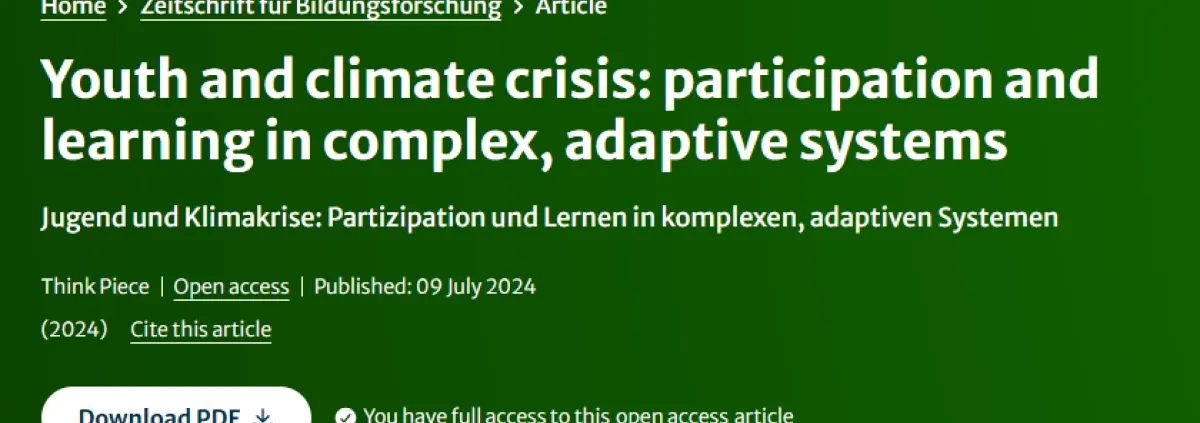Extract from this article (Spannring, Weachter) entitled "Youth and climate crisis: participation and learning in complex, adaptive systems":
"Environmental educators concede that the calculation of changing people and thereby changing society did not work out because the larger educational system and still larger social, cultural and economic systems offset efforts by the individual teacher. It is therefore essential “to make the educational institution as far as possible a microcosm of the emerging sustainable society […]” (Sterling 2001, p. 33). This implies a transformative, constructive and participatory approach with a strong sense of emergence to both “education for change” and “education in change”. Similarly, Brent Davis and Dennis Sumara argue that “transformations of learning systems cannot be understood in linear or mechanical terms” but rather as “prompting complex emergence” (2006, p. 130 f.). They cite the industrial restructuring in the 1980s from top-down, fragmented production to bottom-up, distributed structures in response to a more volatile economy as an example of a “flexibly adaptive—that is, a more intelligent—system” (ibid., p. 133). Climate change exposes us to tremendous volatility and demands education for a future that can only partly be imagined, and must therefore move from simplicity to complexity."
What do you think about this?


Thank you for this initiative.
The transformative, constructive and critical approach was also the conclusion of our recent review of literature (https://teachingthefuture.eu/result-1/) as part of the Teaching the Future Erasmus Plus project that addressed the use of climate data in schools..
We also recommended that education needs to be authentic, scientific and multi-disciplinary, as the issues are real and being experienced at local scales, the possible solutions are interdisciplinary and so a single discipline approach in education is not particularly useful or suitable.
The approach also has to engage in positive rhetoric, with the belief that solutions can be identified, piloted and implemented. See https://shorturl.at/qZOsa for instance.
The potential of AI (Artificial Intelligence) to play a critical role in understanding and addressing the complexity of climate also needs to be promoted in education, as AI has the capacity to drive value from the geographic information we use for decision making, like satellite imagery.
Looking forward to the discussion.
Karl Donert, Geographer, EUROGEO
Thank you Karl, fully agree with you about the AI potential. What do you mean by "authentic"?
Hi Tremeur - for authentic I meant original, real-world - which is being experienced locally by the people concerned and not something "exaggerated" or "dismissed" by the media as fake news.
We need to develop education that fully engages with young people and the world they live in ....
Please log in or sign up to comment.